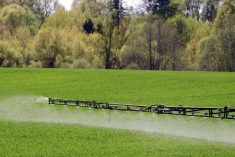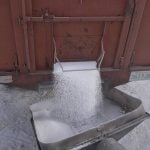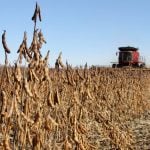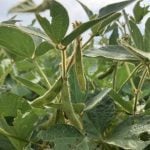Ottawa — A regionally divided federal election resulting in a minority Liberal government leaves a clear challenge for Prime Minister Justin Trudeau and his caucus colleagues on how to handle the future of agriculture.
Trudeau said clearly in his victory speech Monday night that Alberta and Saskatchewan are part of the country and will be heard by his government — but with no representation in government from either province, how will that be accomplished?
Jim Everson, president of the Canola Council of Canada, noted the lack of representation from Alberta and Saskatchewan in the Liberal government. All but one of the 48 seats between the two provinces will be represented by the opposition Conservatives.
Read Also

U.S. grains: Soy futures post biggest monthly gain in nearly five years on China trade optimism
U.S. soybean futures climbed to a 15-month high and posted their biggest monthly gain in nearly five years on Friday following a rally fueled by the prospect of revived exports to China.
Because Liberals were rejected in Canada’s canola-growing regions, he said the government will have to address the clear regionalism demonstrated by the vote. It’s a challenge to move issues forward, he said, when there’s a lack of representation in the government from Western Canada.
“We are certainly here as a canola council to work with them to ensure the interests of farmers nationally and in Western Canada are taken into consideration,” he said. “That’s a challenge and I hope the government recognizes that it’s a real challenge.”
One of the issues Everson will look to move forward is continuing to ask and advocate for more international market access.
“International trade seems to be more protectionist in nature, with these sort of tariff wars that are taking place, and I think the government really needs to look at how to respond to that,” he said.
“We are a country that relies really heavily on rules-based trade, but now the case is the rules don’t appear to be working to Canada’s advantage and so I think we need to be able to look at that and adapt our trade policy.”
Everson is hopeful the government will also better support farmers, by means of incentives, to leave their land in better condition than they found it.
Keith Currie, a vice-president with the Canadian Federation of Agriculture, said there was a clear message sent by voters.
“All you have to do is look at where parties were elected across the country and clearly there is a divide on who is the best party to lead,” he said.
Despite those divisions, which also saw the Bloc Quebecois take 32 of Quebec’s 78 seats, Currie pointed out agriculture “is one of the few things that bind this country right from coast to coast.”
The new government, according to him, has “real opportunities from an economic standpoint for this industry to deliver.”
Challenges facing the industry — such as a need to reform business risk management programs — are recognized by all parties.
Western Canadians have long been outspoken about the need for such supports, and they aren’t expected to quiet down because of the election results.
Currie pointed to infrastructure investments in rural Canada for improved broadband internet and affordable energy sources as two other keys to supporting rural communities and the ag sector.
Jeff Nielsen, president of Grain Growers of Canada, said he is eager to start the ball rolling again and his staff are already making calls to facilitate meetings.
“We’re not sure who are going to be the dance partners yet,” he said. “We think we had some consensus on some key items (such as business risk management) with all parties.”
— D.C. Fraser reports for Glacier FarmMedia from Ottawa.













